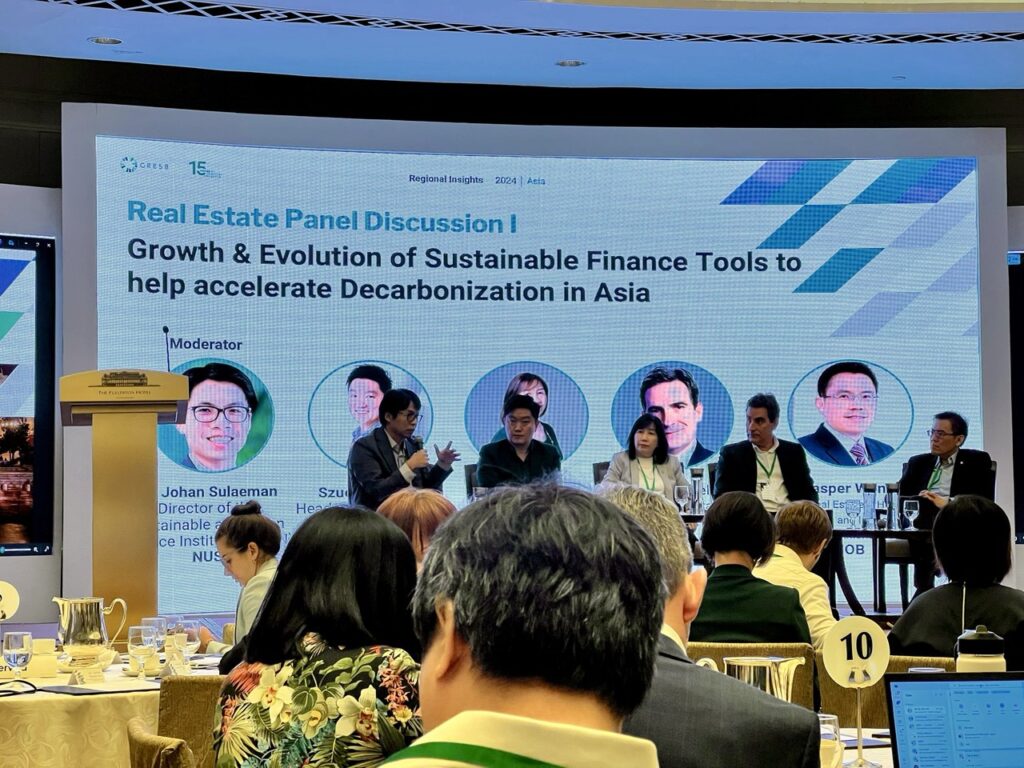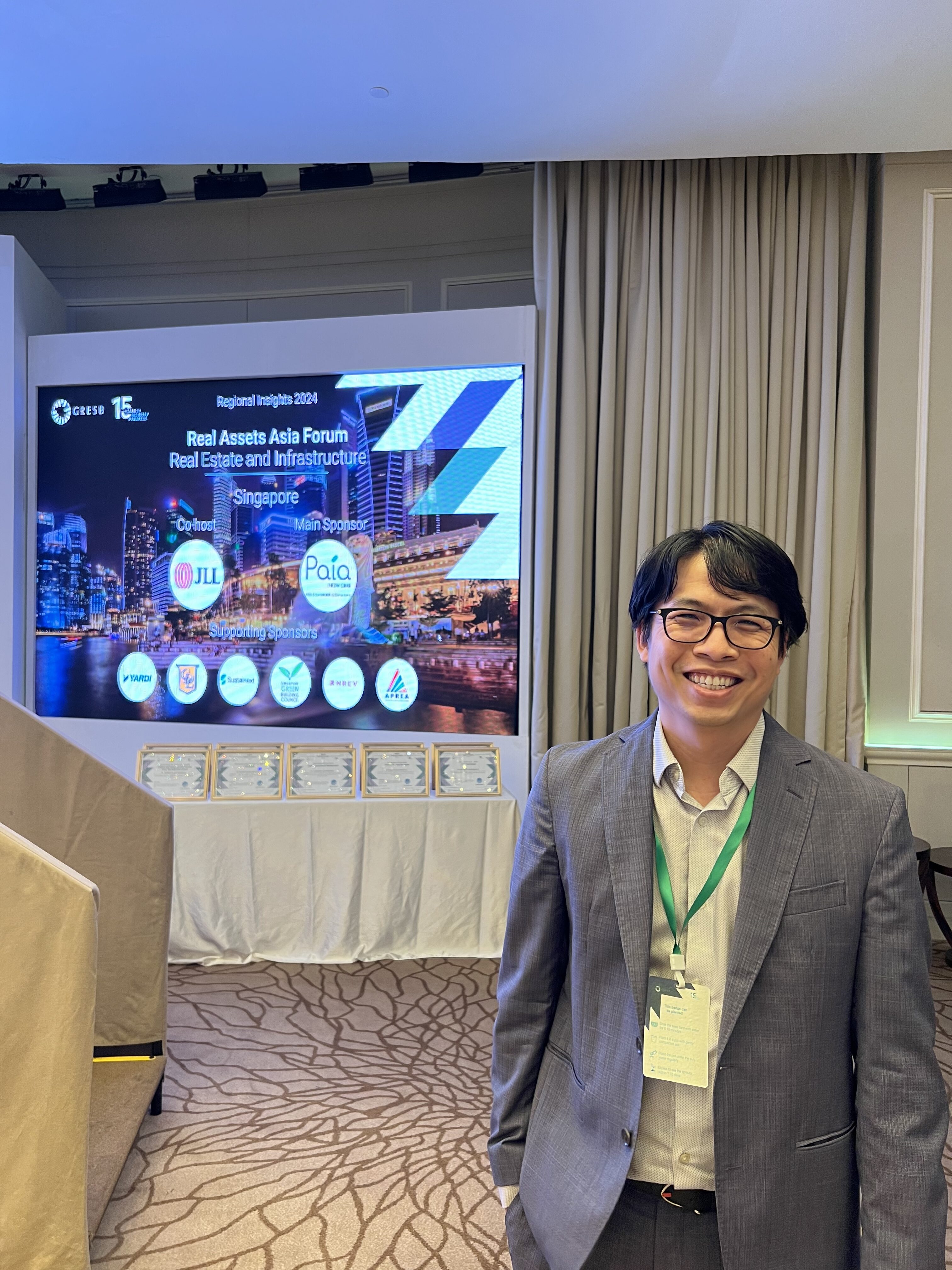GRESB Regional Insights 2024
27 Nov 2024
SGFIN Director Associate Professor Johan Sulaeman was invited to moderate another panel discussion in 2024 GRESB Regional Insights: Singapore on 27 Nov 2024. The panel discussed how different stakeholders have been using sustainable finance (SF) products in light of massive financing needs to transition to a more circular economy. Joining Prof Johan were Szue Hann Tan, Head of Sustainability (Real Estate) of Keppel; Yvonne Soh, CEO of the Singapore Green Building Council (SGBC); Corrado Forcellati, Director of Client Sustainability Strategies, APAC, of Paia from CBRE; and Jasper Wong, Head of Real Estate & Hospitality, Construction and Infrastructure of UOB’s Sector Solutions Group.
Below are the highlights from the discussion:
1. SF tools have been evolving with the emerging different needs
The panel observed a growing diversity of SF tools across Asia, emphasising the role of transition finance in bridging the gap between current practices and full decarbonisation. Jasper saw the evidence in the variety of UOB’s SF product offerings (e.g., eco-loans, SAGE program for SMEs, and sustainable building materials initiatives). Adding to this point, Hann shared Keppel’s approach of scaling the use of SF tools by first targeting low-hanging fruits before moving on to more granular solutions which require bigger financing.
2. Robust certification and clear taxonomy are key elements in the ecosystem of SF tools
From the perspective of building certification, Yvonne remarked that transparency and assurance of sustainability performance are essential to encourage the certification and use of sustainability-linked loans in green building development. Corrado further highlighted the importance of consistent taxonomy to level the playing field among market players. Having a clear taxonomy would help developers align with existing standards and allow equal access to SF products for all stakeholders.
3. The future of SF tools: retrofitting and technological advancement?
Towards the end, the panel focused on retrofitting and technological improvement as potential drivers for more sustainable pathways in Asia. Retrofitting has a lower capital requirement and shorter timeframe while preserving embodied carbon compared to constructing a new building. Moreover, investments in green technology (e.g., measurement and verification of carbon emissions) can improve effectiveness and resilience of buildings, thus improving their sustainability performance in the long run. As such, directing the SF products into these two aspects may be necessary in a market that demands more for brown discounts than green premiums.
Prof Johan closed the panel with two takeaways: that resilience is key amid climate change and taxonomy is crucial as a common language to engage other stakeholders (e.g., lenders, tenants).


